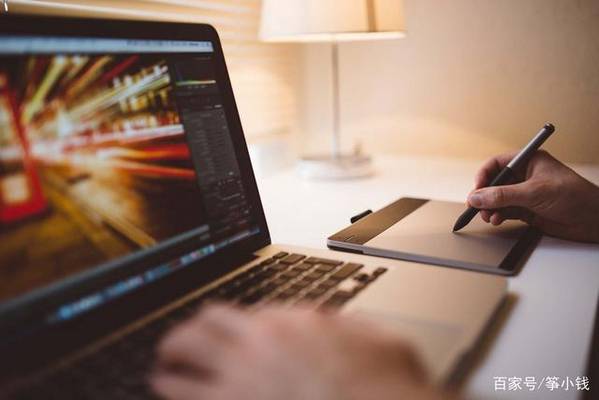??大家听说过lifehack吗?
lifehack
生活黑客
最初为黑客领域的术语,
现在指:
各种能提高个人办事效率的方法和技巧
lifehack风靡国外,
并有同名的专业网站,
分享各种有用的生活常识和技巧,
教你把生活过得更高效,更美好!
今天,vicky想和大家分享一篇
来自lifehack网站创始人leon ho
关于提高阅读效率的最佳方法
记忆困难症的小伙伴们
快来记笔记啦!
the only way to remember everything you have read
by?leon ho?
think about what you had for lunch yesterday or what you did last weekend. those memories are probably?blurry?because they aren’t critical for your survival. our brains have about 8 gb of capacity for immediate recall, and only the most essential information will?make the cut.?this can leave us with a blurred picture of nonessential information.
?
想想你昨天吃了什么午餐,或者你上周末做了些什么。 那些记忆可能是模糊的,因为它们对你的生存并不重要。 我们的大脑拥有大约8gb的容量供即时调用,只有最重要的信息才能做到这一点。 这可能给我们留下一幅非关键信息的模糊画面。
重点单词:
blurry?[’bl??r?]
adj. 模糊的;污脏的;不清楚的
make the cut??达到标准
the human brain is not designed to help you handle with massive amounts of data. we’re?bombarded?with?stimuli?every day. if we processed and remembered everything, then it would probably make it difficult for us to function. your brain sorts through all your experiences to?weed out?the significant and insignifcant things that we encounter.
人脑不是为了帮助你处理大量的数据。 我们每天都受到刺激, 如果我们处理和记住了一切,那么它可能会使我们难以运作。 你的大脑通过你所有的经历来分类,去除我们所遇到的重大的或不重要的事情。
重点单词:
bombard[b?m’bɑ?d]
vt. 轰炸;炮击;不断攻击
stimuli[’st?mj?la?]?
n. 刺激;刺激物;促进因素(stimulus的复数)
weed out?
清除;淘汰;除去
1
the first time you read something, finishing it is the only aim.
在最开始阅读时,完成它是唯一的目标。
when you’ve never seen something, your urge to finish the story is your?main concern. after you’ve satisfied your desire, you probably won’t remember what you’ve seen. finishing the movie or book is not the same as remembering all the details.
当你从未读过一本书或者看过一部电影时,你的主要目标是赶快了解故事内容。 当你满足你的欲望后,你可能不会记得你所看到的。?看完电影或书本与记住所有细节是不一样的。
human beings store memories through a process called encoding. our brain is better at encoding information when it can associate new information with pre-existing experiences.
?
人类通过编码的过程存储记忆。?当我们的大脑能够将新的信息与预先存在的经验联系起来时,我们的大脑在编码信息方面会做得更好。
the first time we encounter information?is akin to?us passing strangers on the street. your?neurons?process that you’ve encountered someone, and that’s the end of it. there’s no recognition, and after you leave the situation, you probably won’t remember who you saw.
?
我们第一次遇到信息就类似于我们在街上碰到陌生人。?你的神经元处理你遇到的人,这就是它的结局。 没有认知,在你离开之后,你可能不会记得你看到的是谁。
重点单词:
main concern 主要顾虑,关注点
akin?[?’k?n]
adj. 类似的;同类的;同族的
neuron
n. 神经元,神经细胞
2
some people do remember what they see, though. why?
但是一些人却能很好地记住他们看到的信息,为什么?
these people don’t have extraordinary memories. they simply take in the information actively. since they’re actively processing information, they are able to experience the book details or the movie scenes repeatedly in a short time. they revise and?synthesize?the information so that it becomes their own.
?
这些人没有非凡的记忆。?他们只是积极地收集信息。?由于他们在积极地处理信息,他们能够在短时间内反复体验书中的细节

或电影场景。 他们修改和综合信息,使之成为他们自己的信息。
it’s like taking the same route every day and running into the same people. you begin to recognize people and observe more about them because they are already familiar to you. likewise, your neurons can easily make new connections when they have been asked to revisit and analyze new information instead of passively observing it.
?
这就像每天走同一条路线,遇到同一个人。 你开始认识别人,并多关注他们,因为他们对你来说已经很熟悉了。 同样,当你的神经元被要求重新访问和分析新的信息而不是被动地观察时,你的神经元可以很容易地建立新的联系。
重点单词:
synthesize?[’s?nθ?sa?z]
vt. 合成;综合
3
下面是提高阅读记忆力和效率的具体tips:
# the key is to see, connect, and then repeat.
记忆的关键是理解,联系,然后重复!
?
the more you actively engage with the content that you are consuming, the more?readily?you’ll remember it. as your neurons revisit the same subject over and over, it’s easier for them to make new connections.
你越积极地

参与你吸收的内容,你就会越容易地记住它。?当你的神经元反复地重复同一个主题时,他们更容易建立新的联系。
重点单词:
?
readily[’red?l?]
?
adv. 容易地;乐意地;无困难地
?
# don’t rely on your initial memory
不要依赖你的初始记忆
?
when you watch movies or read books, you may find yourself?obsessed with?what will happen next. your goal is just to get to the end.?it’s helpful to revisit the content several times. you may find that since you already know what happens, you’ll be able to appreciate the details.
当你看电影或看书时,你会发现自己沉迷于接下来会发生的事情。你的目标就是看到最后。多次重读内容是有帮助的。?你会发现,因为你已经知道发生了什么,你将能够欣赏细节。
重点单词:
obsessed?[?b’sest]
?
adj. 着迷的;无法摆脱的
?
?be obsessed with 沉迷于...
# replaying or rereading isn’t enough
重复是远远不够的
?
rote?memorization (memorizing by repetition) doesn’t allow you to make meaningful connections with what you’re seeing.
?
死记硬背(通过重复来记忆)无法使你与你所看到的产生有意义的联系。
to remember something, you need to apply it. instead of passively taking in information or actively trying to memorize it by rote, it’s important to make connections. if you can apply what you’ve learned, get feedback, and re-apply a concept with feedback, it’s much more likely to stick.
?
要记住一些事情,你需要应用它。?而不是被动地接受信息或积极地背诵,重要的是建立联系。 如果你可以运用你所学到的知识,获得反馈,然后重新应用一个有反馈的概念,那么它就更有可能被记住。
重点单词:
?
rote[r??t]
?
n. 死记硬背;生搬硬套
# have a question at the back of your mind before you begin
在开始阅读前,先在你的脑海里提出一个问题
?
when you pick up a book or sit down to watch a movie, have a purpose in mind. if you don’t, your default mode will simply be to get to the end of the book or film. have a question that you’d like to answer before you begin.
?
当你拿起一本书或坐下来看电影,在脑海中抱着一个目的。 如果你不这样做,那么你的默认模式就是看完这本书或电影。?在你开始之前提出一个你想了解的问题。
when you spot related chapters or ideas in books, find ways to connect them.?highlight them, write notes, or clip the sections that are related.?taking notes by hand is an especially valuable way to help you remember important concepts.
?
当你在书中找到相关的章节或观点时,找到连接它们的方法。 突出显示它们,写下笔记,或剪辑相关的部分。?用手记笔记是帮助你记住重要概念的特别有价值的方法。
?
# have a mind like a steel trap
头脑要灵活
?
chances are that by tomorrow you will forget what you’ve read in this article unless you save it, highlight it, and make a point of relating it to your life.?watching movies and reading mindlessly is a a waste of time. make the most of everything that you see and read by finding ways to engage with the content.?
?
可能明天你就会忘记在这篇文章中读到的东西,除非你保存它,突出它,并把它与你的生活相联系。?盲目地看电影和阅读是浪费时间。?你应该寻找方法去参与并充分利用所阅读的所有内容。
?
以上就是今天的分享了,
对于各位备考的同学,
需要记忆大量的英语材料,
比起背了多少,
更重要的是理解了多少,
运用了多少,
希望大家活学活用,
不做苦背无用功!
????
